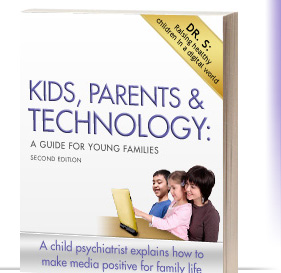Originally published by ThinkerMedia: BestThinking.com on April 21, 2011
Matt Richtel of the New York Times just authored three fascinating related articles about kids’ advertising in the digital age.*
One describes McDonald’s Corp.’s efforts to engage kids in clandestine consumer transactions by having them play free video games. Unfortunately, busy caring parents may have to face yet another difficulty as they attempt to keep their kids’ media and food consumption healthy and safe. Parents can learn about the underlying current motives, thinking and changes in kiddie advertising from Richtel’s second urgently must-read story.
Richtel’s third story describes a very well-designed scholarly experiment on 4th graders in public schools, just published in the Journal of Advertising, to see how well kids would identify advergames as basically ads. That’s important to advertisers because if kids could know they are being pitched at, they could react realistically and appropriately and dismiss the intended sell.
But only teens’ brains are well enough prepared to make that calculation spontaneously. Younger kids just take it in. You see, younger kids will always believe in Santa Claus because they don’t know how not to yet.
It is exactly because of this: Merchandisers can use powerful cutting-edge psychological tools to target kids interacting with technology, and also for other very good reasons, that parents urgently need to be empowered and educated and given their own tech tools too to safeguard and manage kids’ media consumption.
As a veteran child psychiatrist, media / family expert and author of Kids Parents & Technology: A Guide for Young Families, I believe that parents too need a mindset and system of thinking to help them cope with the myriad boundary-blurring challenges that rapidly-evolving technology is forcing on us all. It is time to level the playing field. And parents do have a home-court advantage in shaping kids’ media consumption, not only in the here-and-now but also for the future, by accustoming kids to good media habits.
The author is a life-long technophile and student of how people interact with technology. Currently he is vetting hundreds of kiddie sites for a soon-to-be-launched iPad app that will be the world’s first media manager for parents and institutions. Dr. S intends to empower and educate parents and to put into their hands tools to customize for their kids healthy and safe Internet and other media experiences.
*1. http://community.nytimes.com/comments/bits.blogs.nytimes.com/2011/04/20/mcdonalds-makes-subtle-play-for-children-online/
*2. http://www.nytimes.com/2011/04/21/business/21marketing.html?_r=2
*3. http://bits.blogs.nytimes.com/2011/04/21/children-fail-to-recognize-online-ads-study-says/?scp=10&sq=mcdonald&st=cse
Article by Eitan ‘Dr. S®’ Schwarz, MD
©All rights reserved



Advergames: McDonald’s Videogame Marketing to Kids Is a Tech Media Management Challenge to Parents
Originally published by ThinkerMedia: BestThinking.com on April 21, 2011
Matt Richtel of the New York Times just authored three fascinating related articles about kids’ advertising in the digital age.*
One describes McDonald’s Corp.’s efforts to engage kids in clandestine consumer transactions by having them play free video games. Unfortunately, busy caring parents may have to face yet another difficulty as they attempt to keep their kids’ media and food consumption healthy and safe. Parents can learn about the underlying current motives, thinking and changes in kiddie advertising from Richtel’s second urgently must-read story.
Richtel’s third story describes a very well-designed scholarly experiment on 4th graders in public schools, just published in the Journal of Advertising, to see how well kids would identify advergames as basically ads. That’s important to advertisers because if kids could know they are being pitched at, they could react realistically and appropriately and dismiss the intended sell.
But only teens’ brains are well enough prepared to make that calculation spontaneously. Younger kids just take it in. You see, younger kids will always believe in Santa Claus because they don’t know how not to yet.
It is exactly because of this: Merchandisers can use powerful cutting-edge psychological tools to target kids interacting with technology, and also for other very good reasons, that parents urgently need to be empowered and educated and given their own tech tools too to safeguard and manage kids’ media consumption.
As a veteran child psychiatrist, media / family expert and author of Kids Parents & Technology: A Guide for Young Families, I believe that parents too need a mindset and system of thinking to help them cope with the myriad boundary-blurring challenges that rapidly-evolving technology is forcing on us all. It is time to level the playing field. And parents do have a home-court advantage in shaping kids’ media consumption, not only in the here-and-now but also for the future, by accustoming kids to good media habits.
The author is a life-long technophile and student of how people interact with technology. Currently he is vetting hundreds of kiddie sites for a soon-to-be-launched iPad app that will be the world’s first media manager for parents and institutions. Dr. S intends to empower and educate parents and to put into their hands tools to customize for their kids healthy and safe Internet and other media experiences.
*1. http://community.nytimes.com/comments/bits.blogs.nytimes.com/2011/04/20/mcdonalds-makes-subtle-play-for-children-online/
*2. http://www.nytimes.com/2011/04/21/business/21marketing.html?_r=2
*3. http://bits.blogs.nytimes.com/2011/04/21/children-fail-to-recognize-online-ads-study-says/?scp=10&sq=mcdonald&st=cse
Article by Eitan ‘Dr. S®’ Schwarz, MD
©All rights reserved